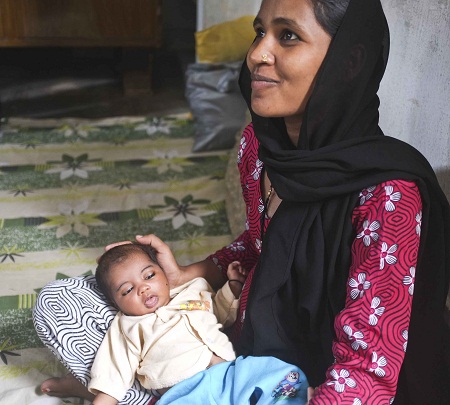Efficiency Is Noble: Study tour, forum focus on promising innovations in health care
Whether delivering babies at one-sixth the cost of comparable providers in the United States, creating a “one-stop-shop” for diabetes care, performing heart surgery for $2,000 (compared to $20,000 to $100,000 in the U.S.) or building mobile platforms to help diagnose patients remotely, solutions to some of our most pressing health problems are already at hand – just not yet in the U.S.
The innovations above are being delivered by LifeSpring Hospitals, Clinicas del Azucar, Narayana Health and ClickMedix, and represent only a handful of promising models being developed to improve access, affordability and quality of health care for patients around the world – even, quite possibly, the U.S.
As our world becomes increasingly connected, the notion of ideas and innovations crossing boundaries is seen as exciting, rather than absurd. It now seems possible that a bright idea catching hold in Vietnam could be applied with similar results in Brazil. We have moved past the point of skepticism of cross-national and cross-cultural replications and are asking new questions: What makes an innovation ripe for adaptation to a new context? How can we identify the active ingredients of the model or idea (what really makes it work), strip away the cultural-specific pieces and reposition it for a new locality? Are there common traits among innovations that succeed in multiple geographies?
At the International Partnership for Innovative Healthcare Delivery, these questions are at the heart of what we do. We work to find the most promising health care innovations around the world and then help to scale their impact and replicate their success in new places, to reach more people and improve access to affordable quality care.
We held our first study tour in India last October in order to bring health system leaders face to face with health care innovators, to provide an inside view of exciting new models of care, and to facilitate discussion about how we can translate those models in our home context. Most participants came from the U.K. and the U.S. and, for most, the study tour was the first time they had looked beyond similar countries, similar contexts, for new ideas in health care delivery.
As the recently released report from the Health Foundation in the U.K. attests, the results are transformational. Despite the dramatic differences in context between India and the U.S. and U.K., participants were inspired by ideas and models that have relevance for their own health systems, their own populations.

Participants in the week-long study tour learned about systems using effective real-time clinical indicators to drive quality and patient engagement. They saw the impact of seemingly simple workplace tweaks, such as bringing basic scientists together with clinicians for ward rounds and daily meetings, to fuel bedside-to-bench-to-bedside research.
(A mother who gave birth to her baby at LifeSpring Hospitals in Hyderabad, left. Photo courtesy of John Illingworth)
Perhaps most importantly, participants came away impressed by the unwavering commitment to efficiency as a noble purpose. Waste is simply not acceptable in an environment where resources are scarce; any waste of resources means less care can be provided, fewer patients served.
Innovators think outside the box to find unlikely solutions. For example, LV Prasad discovered that a Zari thread, typically used in making saris, could be used in place of an expensive electrode, at 1 percent of the cost.
Certainly, we can adapt practices and models emerging in places like India to improve our performance across cost, quality and access measures. But even beyond that, we can learn from the values-driven approach that leads to these innovations. What are the Zari thread discoveries waiting to be made in your hospital or clinic?
Three of the IPIHD innvoators who were on the India study tour will be traveling to the third annual IPIHD Forum in Washington, D.C., on April 6, along with the founders and leaders of 27 other disruptive and award-winning global health innovations and senior corporate and foundation leaders from companies including Baxter, GE, Medtronic, McKinsey, Robert Wood Johnson Foundation and the Health Foundation.
Fittingly, the IPIHD forum kicks off U.S. National Public Health Week. Discussions and presentations will help get closer to the answer to these questions as organizations at the cutting edge of health care share their innovative models and stategize new ways forward.
Andrea Taylor is the research project manager for the International Partnership for Innovative Healthcare Delivery.
A version of this blog originally appeared on the IPIHD website.
- Categories
- Environment, Health Care
